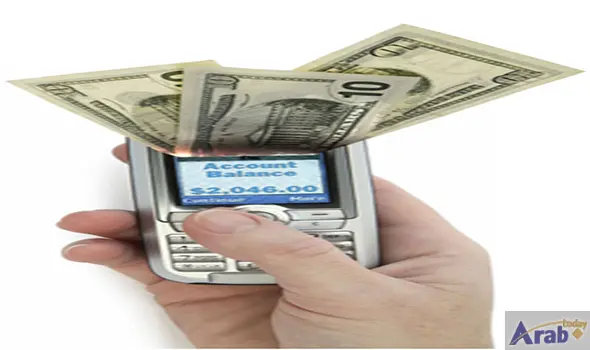In May, stone mason Gilbert Mulunya did not have regular work to enable him to get good income, but he is not a worried man when it comes to finances.
The developer at the site in Ruai, on the outskirts of Nairobi, Kenya's capital, where the mason was working stopped the construction to sort some issues with the city authority.
"The work was halted in mid-May. He paid us about 100 U.S. dollars each for the work we had done and we left the site. I have not been able to find another job," he said Wednesday.
Despite the lack of finances, Mulunya is an emboldened man, thanks to mobile phone loans offered by banks in the East African.
As many other low income earners, Mulunya has found a way to survive on loans disbursed through telecoms by the commercial banks.
He borrows from one lender, uses the money and when the loan is about to mature, usually in 30 days, he seeks cash from another telecom to repay it.
"I do that nearly every month. I learned the trick sometime December last year from a friend and whenever I am financially distressed, I borrow the loan," he recounted.
Two days ago, Mulunya borrowed 50 U.S. dollars from Kenya Commercial Bank (KCB)-Mpesa service to clear a balance of 30 dollars he had from M-Shwari, a partnership between leading telecom Safaricom and Commercial Bank of Africa.
"I had borrowed 80 dollars and repaid 50 dollars. From the 50 dollars I borrowed from KCB-Mpesa, I remained with 20 dollars for my use after clearing that 30 dollars," he said, noting after repaying the M-Shwari loan, he was eligible for another loan.
Mulunya qualifies for up to 130 dollars loan from M-Shwari as he has been a customer for the past two years.
"I no longer worry about finances as long as I repay my loans on time. My credit worthiness with both has been increasing over time," he said.
Bernard Mwaura, a motorbike transport operator in Kayole on the east of Nairobi, said hundreds of people are now using the survival tactic.
"For me that is where I go for my salary advance although I am not in formal employment. I mostly borrow mid-month from M-Shwari to clear a loan with KCB-Mpesa and vice versa. I no longer now have to worry about finances in case I have an emergency. The most I have borrowed is 100 dollars," said Mwaura, who has also joined Equitel to access mobile loans from Equity Bank.
While most borrowers worry about lending charges, Mulunya and Mwaura are not even bothered. The mobile loans are offered at between 5 percent and 10 percent interest rate paid at one ago.
In its quarter one financial results released mid last month, Equity Bank said its mobile phone loans hit 140 million dollars, thanks to increased borrowing, with some customers taking up to 420 dollars.
"We have issued two million Equitel SIM cards of which 90 percent are activated and the number of people borrowing using them is rising faster," the bank's chief executive, James Mwangi, said while releasing the results.
Things are not any different with KCB, whose financial results indicated that it disburses over 100 million dollars via the mobile phone annually.
"The loans certainly are expensive because one ends up paying over 50 percent interest rate if they borrow every month, but if people have found a way of surviving using them why not?" posed Henry Wandera, an economics lecturer in Nairobi.
He noted that the popularity of the mobile loans among low income earners showed the impact of the service on people.
"What people need to guard against is over borrowing, the loans are not any different from the normal bank loans because if you default, you are blacklisted." (APD)
 简体中文
简体中文



